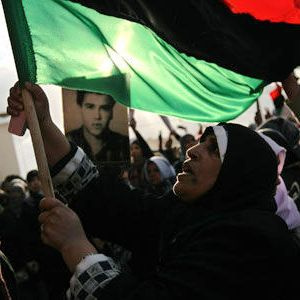Loose Ends in Libya

Hossein Ruivaran
It was generally believed that the death of former Libyan dictator Muammar Gaddafi would signal the end of the eight-month battle to liberate the country, which suffered through more than four decades of brutal dictatorship, but political analysts say there are still many unresolved matters, even after the death of the despot.
From the very beginning of the Arab Spring, the battle for Libya was expected to be totally different than the struggle in other countries of the region. The tribal nature of the country soon became the most influential factor and caused the popular struggle for democracy to continue longer than expected. One of the challenges for the new government in Libya is how to deal with the tribalism of the country, which suffered huge loss of life due to tribal disputes during the eight-month uprising.
The killing of civilians by Gaddafi’s forces led to the entrance of NATO forces, ostensibly to help the revolutionaries, which changed the equations on the ground.
NATO originally said they would disengage their forces as soon as the regime fell.
However, new missions are now being defined for foreign forces in the new system. This will have serious repercussions for the young revolution since the foreign powers will seek to establish new military bases in North Africa, with the goal of gaining more control over developments in the Middle East and North Africa. And the presence of foreign troops in Libya would deal a huge blow to the independence and sovereignty of the country.
Western corporations are also looking to get a piece of the pie in the new system. The Libyan National Transitional Council has announced that that they are still not in a position to sign international economic agreements in the name of the Libyan nation as their legitimate representatives, but Western corporations seeking to secure huge oil contracts will continue applying pressure on the NTC to compel them to do so.
The process of transition to a new political system is another major challenge facing the country since the death of Muammar Gaddafi. The new government has not been established yet, and various tribes are struggling to get a better position in the new Libya, which exacerbates the situation.
There are still many loose ends in Libya, and resolving all these problems will be the most difficult task for the new government in the months to come.

